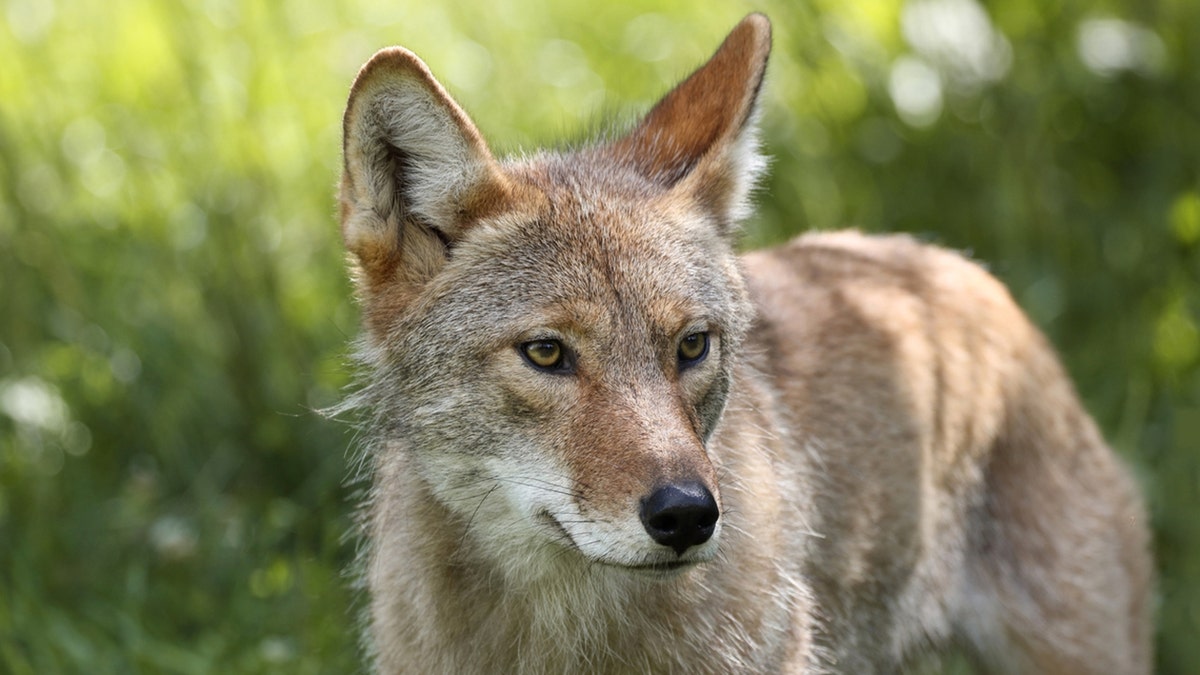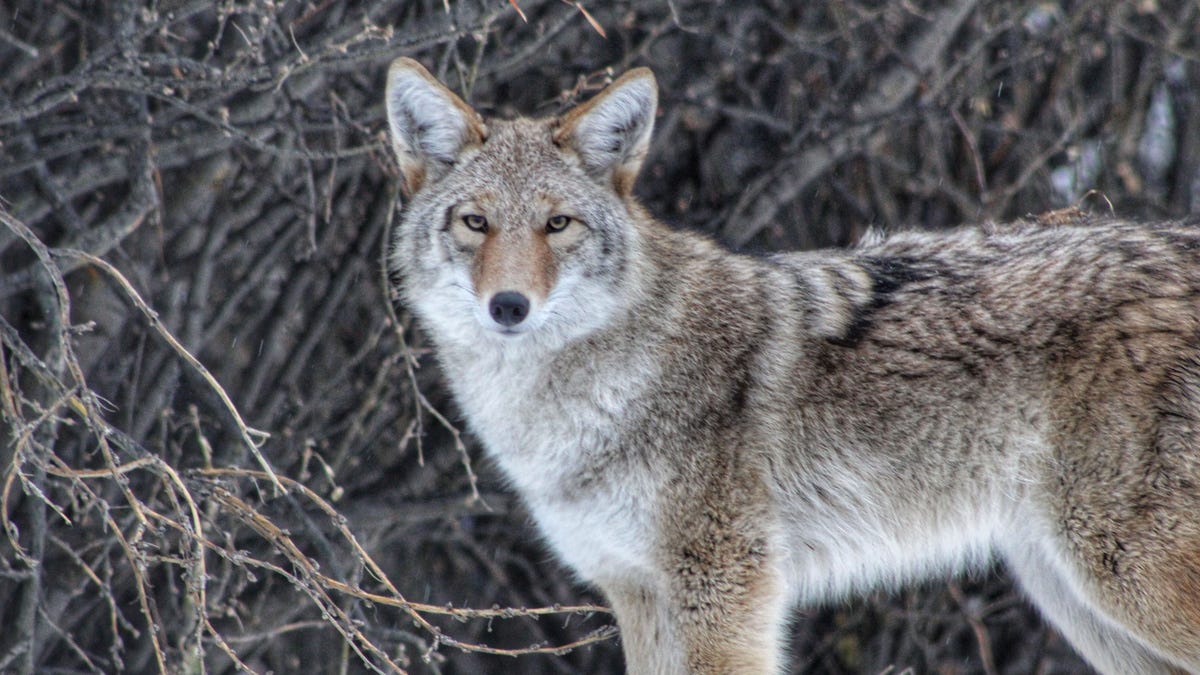Authorities in Colorado are “aggressively pursuing” a coyote that attacked a 4-year-old girl in Colorado Springs on Thanksgiving, according to Colorado Parks and Wildlife (CPW).
The attack took place late in the afternoon on Thursday near the Air Force Academy in a neighborhood east of Monument Creek and Interstate 25 when the little girl and another child approached the coyote thinking it was a dog, the agency said.
The coyote, which was crouched behind a tree, lunged at the girl and grabbed the back of her head, causing serious injuries.
“This could have been much worse – a tragedy – if not for the quick action of the child’s father to stop the attack, rescue his daughter and scare the coyote off,” said Tim Kroening, CPW’s Area Wildlife Manager for the Pikes Peak region.
TOMMY LEE’S DOG ATTACKED BY COYOTE BEFORE BEING RESCUED BY WIFE BRITTANY FURLAN
CPW was informed of the attack on Friday after the little girl was released from the hospital, prompting an investigation and a hunt for the animal.
“Like most wildlife, coyotes are naturally afraid of humans but they can lose that fear and become bold and aggressive if they are protecting their young, being fed or are sick,” the agency said.
Since it’s not possible to identify the coyote responsible, CPW said any coyote found near the area of the attack will be “lethally remove[d]” and sent to a health lab to be examined for human DNA and disease.

“We don’t know yet what brought the coyote into the yard with this child,” Kroening said. “But it’s an important reminder to everyone to be alert and haze wild animals away from their homes and neighborhoods. That goes for deer, fox, bobcat, bears and other animals. Don’t let them get comfortable around people.”
CAT SAVES DOG’S LIFE BY CHASING OFF COYOTES — SEE THE AMAZING VIDEO OF THE RESCUE
If someone comes across a coyote, Kroening says to throw rocks or yell at the animal. If the coyote seems aggressive, call CPW and they will attempt to remove it.
The agency also issued a reminder to not feed coyotes in order to keep them wild and afraid of humans for the safety of children and pets.

“We’ve had cases of them attacking small dogs and cats as food,” Kroening said. “And they can view pets as potential competitors for food.”
The pursuit and investigation remain active, and the agency asks for the public’s “cooperation and understanding” during this time.
Read the full article here










